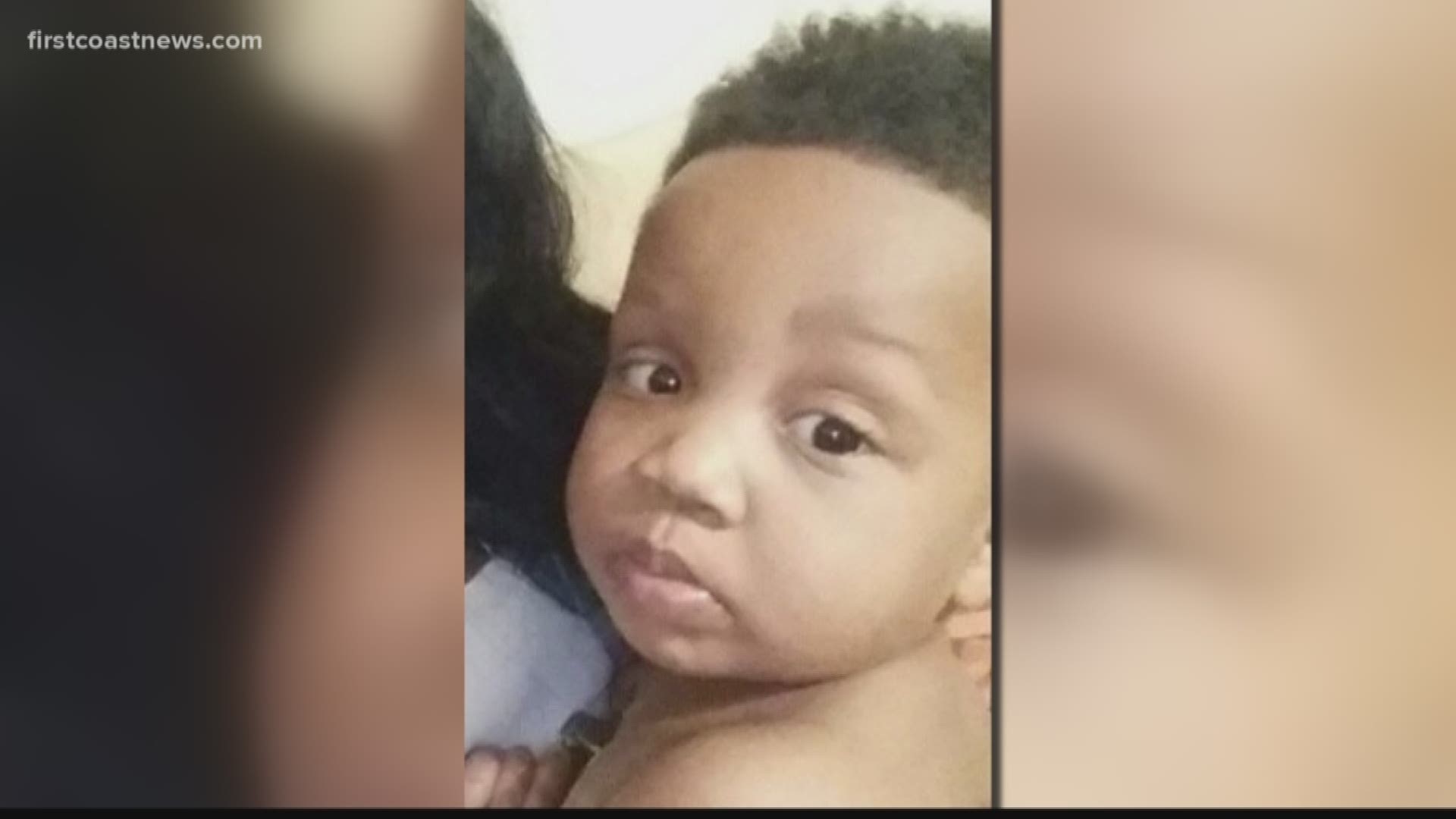Henry Hayes and Kquame Richardson have both been found guilty of first-degree murder in the case of 22-month-old Aiden McClendon.
Stunned and tearful, family members on both sides reacted to the two guilty verdicts with similar shades of grief.
The defendants, both teenagers at the time of the crime, held their head in their hands.
The case was complicated, with two juries, and evidence ranging from DNA and ballistics to eyewitness testimony. There were also hours of evidence culled from social media — evidence prosecutor London Kite said proved criminal gang activity.
Neither defendant testified in his defense. Neither did the man prosecutors say was the intended target of the drive-by, Aiden Mcclendon’s uncle. He refused to cooperate with investigators.
Defense attorneys for both men pushed back on the evidence, calling it circumstantial and the witnesses unreliable.
But the two juries of six disagreed, and returned a swift verdict.
The family of Aiden Mcclendon was too upset to talk today but they asked Mike Liles of the Justice Coalition to speak to First Coast News on the family‘s behalf. He said they were grateful for the community's support, but recognized the profound grief "on both sides of the asile."
The defendants return to court Aug. 6 for sentencing. Both face life in prison, with the possibility of parole.
DAY 5 RECAP:
Henry Hayes’ defense strategy put responsibility for the murder of the toddler squarely on his pal Kquame Richardson. Hayes’ sister and dad both testified that Kquame was upset when he learned Hayes had been implicated in the crime and told them he was going to turn himself in. And Hayes’ attorney James Hernandez noted the only DNA evidence linking the defendants to the crime was Richardson’s.
“The state is trying to say because my client associates with bad people, he must be guilty,” Hernandez told jurors. “I would submit to you there is reasonable doubt in this case as to the guilt of my client.”
%INLINE%
Hernandez called into question the testimony of a key state witness, with the initials SB. (First Coast News is not using his name at the request of prosecutors.) The former gang member and lifelong friend of both defendants testified at length about gang signifiers and signs, helping decode the language of text messages and the lyrics of so-called “drill” songs introduced into evidence. Prosecutors say the lyrics of the songs called for and commemorated crimes.
"These are not songs. These are not raps. These are admissions," Prosecutor LE Hutton told the jury.
Defense attorneys argued that SB’s testimony was unreliable because he was rewarded for it with a plea deal in a separate felony case.
Defense attorneys called their only witness in the case Monday. Ashley Clark testified that her 3-year-old daughter had been shot in a Christmas Day drive-by in late 2015. She said SB, whom she was dating at the time, offered to retaliate and later hinted he’d killed McClendon – an effort, she theorized, to “earn brownie points” with her.
%INLINE%
Prosecutors dismissed the idea that anyone but the two defendants were to blame. They questioned Clarks’ veracity as a 10-time convicted felon, as well as her motives. She was at some point romantically involved with Hayes, and has a tattoo of his name.
In closing arguments. Prosecutor LE Hutton told the jury that Hayes was linked to the crime through his phone – both the phone’s physical location at the time of the crime, according to cell phone tower data, and multiple searches found in the phone’s metadata. Those searches included the state’s stolen license plate registry, and searches of local news sites after the crime was committed. Investigators also found a photo of the dead child downloaded to his phone.
Stay with First Coast News as the trial develops.

